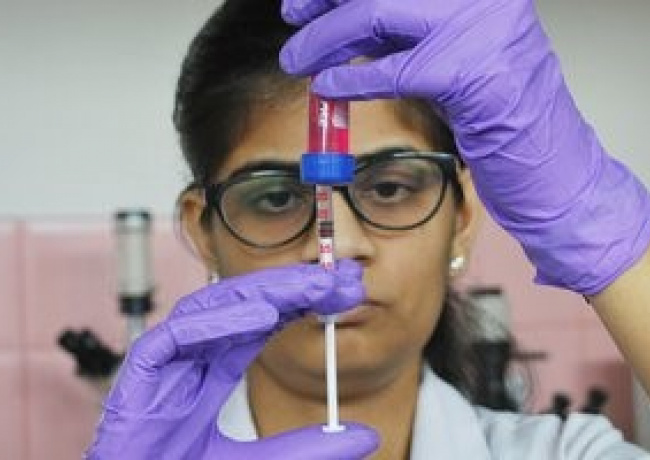Research
What We Do Globally
The Leprosy Mission’s Global Research
To defeat leprosy in our lifetime, The Leprosy Mission is investing in research and innovation across our three strategic priorities: transmission, disability, and discrimination.
Our Research Priorities
Understanding Transmission
The transmission of leprosy is poorly understood. We aim to change that.
If we are to end the transmission of the disease, we must understand the mechanism of transmission better than we currently do.
The Leprosy Mission’s Stanley Browne Laboratory in India is an established global leader in focused molecular studies in environmental reservoirs (leprosy bacteria are in common soil amoeba), transmission within households, and transmission of leprosy through the nose.
Meanwhile, our rural health programmes in Bangladesh enable large transmission studies to consider factors among blood relatives, household members, and various degrees of contact, as well as the clinical aspects that need investigating in relation to transmission.
This infrastructure and expertise leaves us in an excellent position to conduct world-leading research that will break down the barriers to understanding leprosy transmission.
Reactions and neuritis
We are focused on the prevention & management of reactions & neuritis.
Read MoreThe Leprosy Mission Research Centres
India
With around two thirds of all global leprosy cases being diagnosed in India every year, The Leprosy Mission Trust India (TLMTI) is well placed to conduct important studies to help us understand leprosy and its consequences better. Research is carried out in its molecular biology research laboratory (Stanley Browne Research Laboratory, Delhi) and in its 14 hospitals, six vocational training centres and many community empowerment projects.

Nepal
Established in the 1970s to study the human immune responses to M. leprae, the Mycobacterium Research Laboratory (MRL) at Anandaban Hospital in Nepal is an essential part of our global research hub.

Research Partners
We cannot conduct research alone. We partner with many organisations, universities, and research institutions across the globe. These partnerships are vital to achieving zero leprosy.

The Leprosy Mission Research Committee
The committee guides our research work






